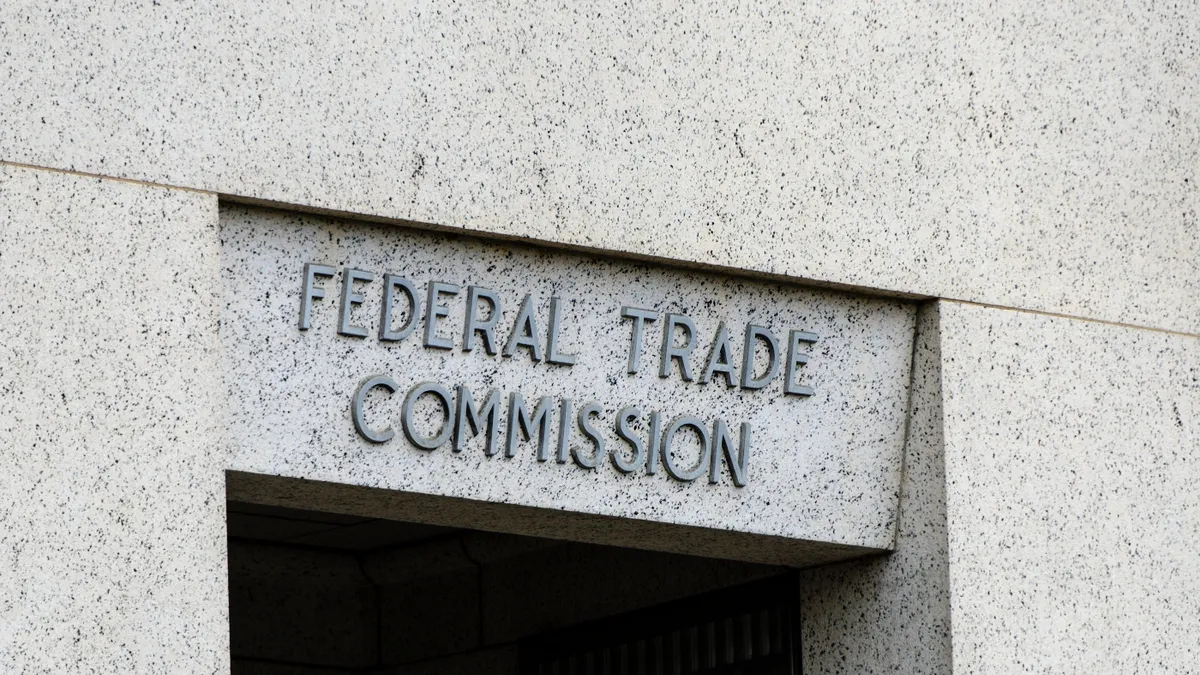Dive Brief:
- The Federal Trade Commission has released its second report digging into how the business practices of pharmacy benefit managers could be inflating drug costs in the U.S., in the latest and likely last salvo between antitrust regulators in the Biden administration and the controversial middlemen in the drug supply chain.
- The report accuses CVS’ Caremark, Cigna’s Express Scripts and UnitedHealth’s Optum Rx of jacking up the price of lifesaving drugs by hundreds and thousands of percent. The so-called “Big Three” PBMs also directed the most profitable prescriptions to affiliated pharmacies at the expense of independent operators, and paid themselves more than other pharmacies for dispensing drugs, the report says.
- The findings are similar to those in the FTC’s initial report released last summer as part of the agency’s ongoing investigation into PBMs. However, the second report looks at a much broader array of drugs after the first report was criticized for relying on too little data. FTC commissioners voted unanimously to release the report on Tuesday.
Dive Insight:
Three years ago, the FTC launched its inquiry into PBMs, companies that negotiate discounts on drugs with pharmaceutical companies and pay pharmacies for dispensing drugs.
PBMs say they save plans and patients money by pressuring drugmakers to lower the cost of drugs. However, the FTC’s first report from its investigation was highly critical of PBMs, finding unchecked consolidation has resulted in a few major players wielding outsized influence to profit at the expense of patients and independent pharmacies.
Two months later, the agency leaned on the report to sue Caremark, Express Scripts and Optum Rx — which jointly account for 80% of U.S. prescriptions — alleging their business practices artificially inflated the cost of insulin.
However, members of the PBM industry, along with the agency’s two Republican commissioners and some pharmacy market experts, slammed the report as one-sided and argued it relied on cherry-picked data. Members of the Big Three countersued the FTC and called on FTC Chair Lina Khan and two Democrat-appointed commissioners to recuse themselves from the agency’s lawsuit.
Specifically, the FTC’s first report found Caremark, Express Scripts and Optum Rx were prioritizing access to high-cost drugs in return for larger discounts from drugmakers and giving their own pharmacies preferential treatment, harming independent operators. However, the report’s findings relied on just two specialty generic drugs used to treat cancer.
The second report released Tuesday analyzes a significantly larger set of drugs after PBMs shared more data, according to the agency.
The FTC looked at all specialty generic drugs dispensed from 2017 to 2022 for people in commercial health plans and Medicare prescription drug plans managed by Caremark, Optum Rx and Express Scripts. The resulting data set includes more than 50 medications.
According to the report, the Big Three marked up specialty generic drugs dispensed at affiliated pharmacies beyond their estimated acquisition costs, generating $7.3 billion in additional revenue from 2017 to 2022.
This excess dispensing revenue grew at a compound annual growth rate of 42% over the study period, the FTC said.
Meanwhile, plan and patient costs for the drugs increased 21% for commercial claims and roughly 14% to 15% for Medicare claims.
The problem is “growing at an alarming rate,” Hannah Garden-Monheit, the director of the FTC’s Office of Policy Planning, said in a press release on the report. FTC staff noted the estimated $7.3 billion markup is likely an underestimate due to how acquisition costs are measured.
Caremark, Express Scripts and Optum Rx also reimbursed affiliated pharmacies at a higher rate than unaffiliated pharmacies on nearly every specialty generic drug investigators analyzed. The report also found evidence that the PBMs are steering more profitable drugs to their own pharmacies.
And, the Big Three generated another $1.4 billion in estimated income from spread pricing, a controversial practice where the middlemen bill clients more for a drug than they pay a pharmacy for dispensing it, according to the report.
Spokespeople for Caremark and Express Scripts said they were still reviewing the report, but that it’s misleading to focus on specialty generic products, which represent a small portion — about 1% to 2% — of clients’ overall drug spend.
The FTC also ignored cost-saving guarantees that PBMs provide clients, according to Caremark.
“How many more interim reports will it take before the FTC includes the mountain of data that refutes these few outliers? We’ve provided terabytes of data in compliance with their requests, and virtually none of that data is reflected in this report,” David Whitrap, CVS’ vice president of external affairs, said in an emailed statement.
The Pharmaceutical Care Management Association, the largest PBM lobby, also said the report relies on incomplete information.
“It’s clear this report again fails to consider the entirety of the prescription drug supply chain and makes sweeping assertions about the role of PBMs disconnected from a full appreciation of their critical cost-saving role for employers, unions, taxpayers, and patients,” Greg Lopes, PCMA’s VP of public affairs, said in a statement.
A spokesperson for Optum Rx said the company is focused on lowering the cost of specialty drugs and supporting patients with complex and rare conditions.
The FTC’s decision to release the report comes six days before the swearing in of President-elect Donald Trump ushers in an administration expected to dial back the Biden administration’s antitrust crusade.
Trump plans to name current Commissioner Andrew Ferguson as FTC chair and appoint Mark Meador, an antitrust lawyer and former congressional staffer, to fill Khan’s vacancy. (Khan’s term expired in September, but she can stay on until she’s replaced, which is likely to be soon after Trump assumes office.)
The appointments suggest a pro-business bent for the agency, and an increasingly hands-off approach to regulating U.S. markets. They could also be good for PBMs: Commissioner Ferguson recused himself from the FTC’s lawsuit against the drug middlemen, arguing it represented an overreach of the agency’s power.
Still, both Ferguson and Melissa Holyoak, the other Republican commissioner, voted to release the second report on Tuesday, suggesting bipartisan support for future efforts.
And recent statements from the president-elect have created more uncertainty for the drug middlemen. In December, Trump said in a press conference he planned to “knock out the middlemen” in a reference to PBMs.
Momentum in Congress to curb rising drug costs has also coalesced around addressing PBM business practices. A bipartisan group of lawmakers proposed legislation to break up PBMs in December, while PBM reform almost made it into year-end spending package that was later scuttled by the president-elect.
Correction: A previous version of this article misstated the length of Lina Khan’s FTC term. Khan’s term expired in September.











